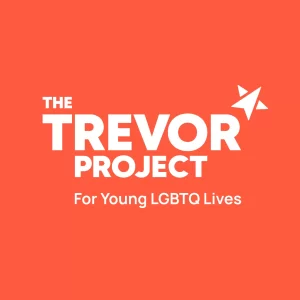We’re still discovering how individuals form their gender identities – how they do not identify with their biological sex or social constructs around being male or female.
For parents or caregivers of a transgender or nonbinary child, it can be a confusing and overwhelming journey. But loving and accepting children for who they are plays a vital role in affirming their identity.
After all, transgender and nonbinary children should feel they are in a safe environment where they can flourish as their authentic self. They are entitled to be respected, supported, and loved, especially at home.
Gender has become more fluid
Gender identity is not based on biological sex or sexual orientation, but instead is an individual’s unique sense of their identity. This identity may conform with social constructs around gender roles, or it may not. For some, they feel they were born in the wrong body, while others may not identify with the binary distinction of man or woman.
Ultimately, we find ourselves at a moment where many individuals are questioning and redefining the concept of gender in a way that celebrates their own experiences and feelings.
For some parents or caregivers, this evolution in gender identity may seem sudden, but the reality is, it’s been happening for decades. There was a time when a woman wearing pants was scandalous or a stay-at-home dad was deemed socially unacceptable. Multiple social movements, such as feminism and LGBTQIA+, have paved the way for the changes in gender identity we’re witnessing today.
Supporting a transgender or nonbinary child
When a young person develops a physical disease or ailment, the path forward is fairly straightforward – tests can be ordered, a diagnosis given, and a treatment plan put into motion.
But when a young person expresses a change in their gender identity, parents may find themselves at a loss for how to move forward. Answers don’t fall into place as easily and there isn’t one “correct” way to handle the situation.
So how can parents and caregivers ensure they support their transgender or nonbinary child on this sometimes difficult and complex journey?
- Accept their identity. Rejection from parents can be profoundly damaging to a child who is questioning their gender identity. Most young people that come out as trans have thought a lot about their feelings and experiences before telling anyone. Their identity should not be treated as a passing phase or something they will grow out of but as an evolution in who they are as an individual.
- Follow their lead. It’s important to remember that every transgender child’s journey will look different. Not every transgender child will wear the same type of clothing or want to make the same physical transitions. Let your child lead and tell you how they want to navigate their world.
- Take the time to understand their new identity. It’s understandable and natural that it will be difficult to say goodbye to your child’s identity as you’ve known it. But it’s important that you show love and support by referring to them as their preferred gender and name. It will take some time for you to adjust, so be patient with yourself. You may want to consider seeking professional support from a counselor to help you navigate these new waters.
- Be open to discussing “adult” topics. As a parent or caregiver, it can be difficult to know the right thing to say when kids question what we deem to be adult topics such as gender, sex, and sexuality. While it can feel awkward for everyone, it’s important to keep the lines of dialogue open. Broaching topics of sexuality can be awkward for both parties, however, they’re necessary conversations to have and can create a safe space for your child.
- Let go of expectations. As a parent, you probably have dreams and fantasies for your child’s future and what they’ll achieve. A trans child may not be what you envisioned and it can be hard to accept that. But it’s important to remember that your expectations for your child are your own and not theirs. Be open to their choices and how they want their life to look.
- Educate yourself. These are probably uncharted waters, and it’s okay if you don’t have all the answers or understand everything. This experience can be an opportunity for you to learn more about the world around you, as well as your child. Consider learning more about transgender individuals by reading books, listening to podcasts, or joining a support group.
You are not alone

Know that you’re not alone. One of our highly trained, compassionate counselors can be your guide in creating a safe, loving, and accepting space for your child.
Reach out to us today to find the right counselor for you.
Sunstone Counseling Supports The Trevor Project

If you are thinking about harming yourself, get immediate support from a Trevor Project crisis counselor, available 24/7.





